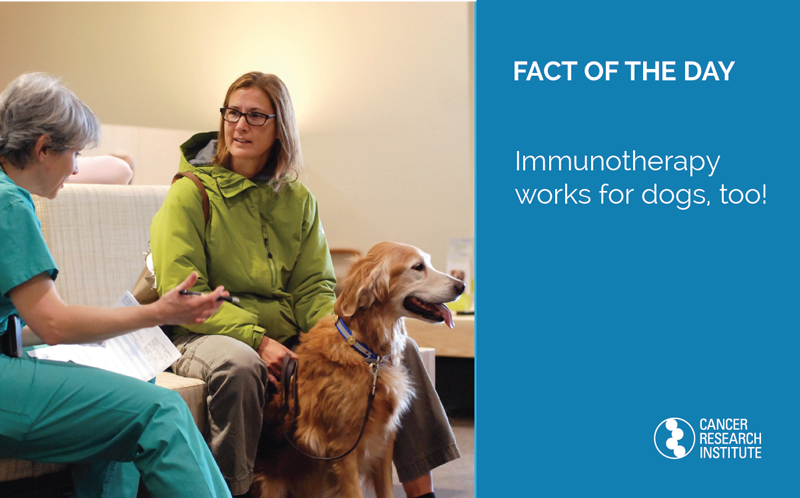
Immunotherapy works for dogs too!
As many of you know, cancer affects dogs too, and is in fact the most common cause of death in older dogs (ages 10+). Fortunately, immunotherapy’s benefits are beginning to be extended to dogs as well, and the University of Pennsylvania is leading these efforts through their Penn Vet Cancer Center, which is directed by Ellen Pure, Ph.D., and their Mason Canine Cancer Immunotherapy Research, which is led by Nicola J. Mason, Ph.D., B.Vet.Med.
Dr. Mason is pictured above with Lewis, a golden retriever with osteosarcoma (bone cancer) who was treated in one of Dr. Mason’s immunotherapy clinical trials. After undergoing a limb spare procedure (that allowed him to avoid total amputation), Lewis received a genetically modified bacteria similar to CRS-207 that targets a tumor-specific protein. This bacterial vaccine is designed to stimulate his immune system against any hidden metastases as well as endow his immune system with “memory” so that it can provide protection against the cancer should it ever return.
Vaccines aren’t the only immunotherapies Dr. Mason’s team uses to treat dogs. Two examples are Kobe (below, left), who is being treated with an approach that enables his immune system to produce a tumor-targeting antibody, while Harley has been treated with anti-CD20 CAR (chimeric antigen receptor) T cell immunotherapy for his leukemia.

Image credits: University of Pennsylvania School of Veterinary Medicine, Mason Canine Cancer Immunotherapy Research